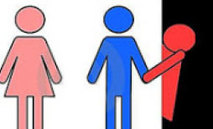
“The ECHR Put Off Plans to Legalize Prostitution in France”
The ECHR Put Off Plans to Legalize Prostitution in France
On July 25, 2024, the European Court of Human Rights (ECHR) validated France's “abolitionist” approach to prostitution. This article, published in the French magazine Valeurs actuelles, answers to three questions raised by this judgment.
What was the balance of power at the ECHR?
The legal action was organized by associations who wanted the ECHR to recognize a “freedom” to prostitute and to order France to abolish its 2016 law imposing penalties on clients. This is what we call “strategic litigation:” the primary objective is not to defend victims, but to obtain a political achievement.
56 associations intervened in the ECHR proceedings to call for the legalization of prostitution, including the French Planned Parenthood, Inter-LGBT and the “Red Umbrella” Fund, created in 2012 by the Open Society. Interestingly, it was not the “freedom of sexuality” that these associations promoted, but “sex” as “work.” They stressed that legalizing prostitution would mean more income for prostitutes, fewer identity checks by the police, and the regularization of foreign prostitutes, particularly those subject to a deportation order. The United Nations expert on health, Tlaleng Mofokeng, also submitted to the ECHR her arguments in favor of the liberalization of “sex work” throughout the world.
On the other side, two governments - Norway and Sweden - and 13 associations intervened at the ECHR to defend the penalties of prostitutes’ clients. The “Mouvement du Nid,” a grassroots association working with prostitutes, explained that this system was based on reality: prostitutes are not criminals, but “victims of a system of sexist and sexual violence.” Another French association, “Osez le féminisme,” demonstrated that acts of prostitution are “traumatic” and that the prostitution system is based on a “rape culture.”
What exactly does the ECHR ruling say?
The ECHR refused to consider that prostitution was a right, protected by Human Rights, which would be binding on France and other European states. The European judges have thus put a stop to plans to legalize prostitution in France. No: “sex” is not “work,” a pimp is not an “entrepreneur,” a human trafficker is not the CEO of a multinational corporation. Many French unions (CGT, CFDT, Solidaires, etc.), have welcomed this ECHR decision.
However, we regret that the ECHR refused, in its words,[1] to “enter into the debate” on “the question whether prostitution can be freely consented to or always stems from coercion, if only that resulting from socio-economic conditions.” The ECHR thus chose to leave the door open for the future. Its judgment concludes with a request to the French authorities to remain open to “nuancing [their approach] according to the evolution of European societies and international standards in this field.”
The ECHR should not ignore the link between prostitution, sexual exploitation and human trafficking. This link has been documented. The context of the Olympic Games illustrates this phenomenon now: the arrival of millions of tourists increases the “demand” for prostitution, and the authorities are noticing, as a result, the deployment of sexual exploitation networks, with half of the victims believed to be minors. It is the “demand” for prostitution that fuels trafficking, and France is therefore right to punish the clients of prostitutes.
Are there cases where prostitution is free and consented?
Some countries, such as Germany, have legalized prostitution. However, according to a survey by the French magazine Le Point, out of the 400,000 prostitutes in Germany, almost all are women and 95% come from abroad. This is not the case in any other profession. The over-representation of certain poor regions of Eastern Europe or Africa shows that trafficking networks exist.
It is important to understand the definition of trafficking. Under international law, it consists in recruiting a person, by force or fraud, with a view to exploiting him or her. The usual means of trafficking are the abuse of situations of vulnerability and the offer of payment. These means are designed to obtain the person’s “consent.” However, international law is very clear: the consent of a victim of trafficking to the practices to which he or she is subjected has no value. In other words, consenting to be the object of trafficking does not eliminate the trafficking itself, which is prohibited by international treaties. Thus, the law is in line with the philosophical point of view: beyond consent, there is the dignity of each person, of each body, which society must protect. Consent is specific to each individual, subjective, whereas dignity is objective, intrinsic, inherent to the human person because it is human. To be valid, consent must therefore remain ordained to dignity.
Trafficking also fuels pornography. In France, this was demonstrated by the “French Bukkake” affair, linked to the two leaders of the French pornographic market, Dorcel and “Jacquie et Michel.” The problem is the same: it is wrong to see prostitution as a “job” like any other, and it is wrong to see pornography as a film genre, with actors. In both cases, they are slave industries, with victims.
_______
[1] Free translation from French to English.












